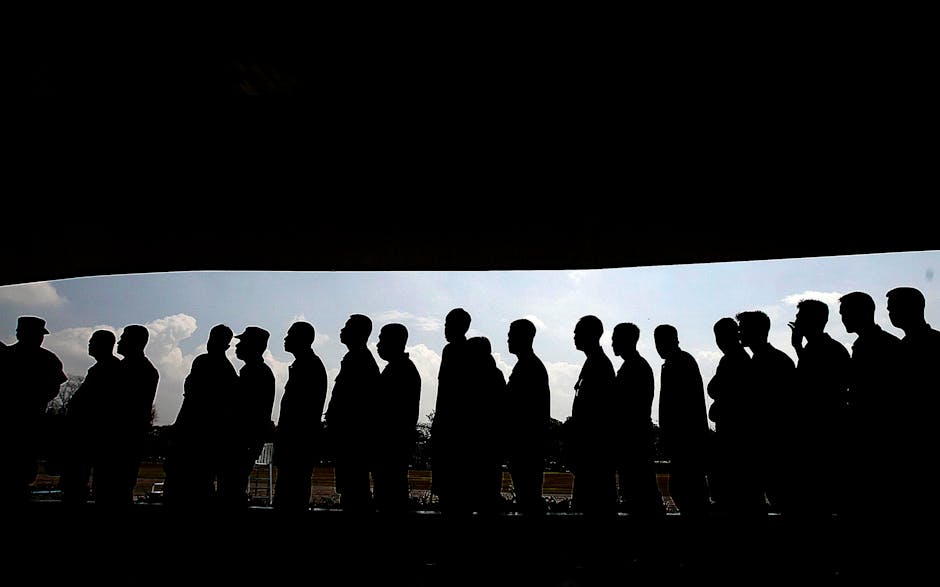The Evolution of Societal Norms
From the way we dress to the way we communicate, societal norms dictate much of our daily lives. But have you ever stopped to consider how these norms came to be? How they have evolved over time, shaping and molding the fabric of society? The evolution of societal norms is a fascinating journey through history, culture, psychology, and more. In this article, we will delve deep into the intricacies of societal norms, exploring their origins, transformations, and the impact they have on individuals and communities.
The Origins of Societal Norms

Throughout history, humans have always lived in groups, relying on shared customs and behaviors to navigate social interactions. The earliest societal norms can be traced back to ancient civilizations, where codes of conduct were established to maintain order and cohesion within communities. These norms were often rooted in religious beliefs, cultural traditions, and the need for survival.
For example, in ancient Egypt, societal norms revolved around the worship of gods and pharaohs, with strict hierarchies dictating the roles and responsibilities of individuals. In ancient Greece, norms were influenced by philosophical ideals of virtue and honor, shaping everything from politics to art. These early norms laid the foundation for the complex web of behaviors and expectations that govern society today.
The Evolution of Gender Norms

One of the most significant transformations in societal norms has been in the realm of gender. Throughout history, gender roles have been deeply ingrained in societal expectations, with men and women assigned specific duties and behaviors based on their biological sex. However, as societies have evolved, so too have these norms.
In the 20th century, the feminist movement brought about a seismic shift in gender norms, challenging traditional ideas of masculinity and femininity. Women fought for equal rights, breaking free from the constraints of domesticity and entering the workforce in unprecedented numbers. Today, gender norms continue to evolve, with greater acceptance and visibility for those who do not conform to traditional gender identities.
The Influence of Technology on Social Norms

In today’s digital age, technology plays a crucial role in shaping societal norms. The rise of social media has transformed how we communicate, connect, and express ourselves, leading to new norms and expectations in the online realm. From the way we present ourselves on social platforms to the etiquette of email communication, technology has introduced a new set of norms that govern our virtual interactions.
For example, the concept of ‘cancel culture’ has emerged as a societal norm in the online space, where individuals or organizations face public backlash for perceived offenses. This phenomenon highlights the power of social media in shaping and enforcing norms, as the court of public opinion becomes a driving force in determining acceptable behavior.
Globalization and Cultural Norms

With the process of globalization, cultural norms have become increasingly interconnected, leading to a blending of traditions, values, and practices from different parts of the world. This cultural exchange has both positive and negative implications, as societies grapple with the challenge of preserving their unique identities while embracing diversity.
For example, the spread of Western norms of beauty and fashion has had a profound impact on societies around the world, influencing everything from clothing trends to beauty standards. However, this globalization of norms has also sparked debates about cultural appropriation and the erasure of indigenous traditions.
The Impact of Societal Norms on Mental Health
Societal norms can have a profound impact on mental health, influencing how individuals perceive themselves and others, as well as the expectations placed upon them by society. The pressure to conform to certain norms can lead to feelings of inadequacy, anxiety, and depression, as individuals struggle to meet societal standards.
For example, the pervasive norm of perfectionism in modern society has been linked to a rise in mental health issues among young people, who feel the need to excel in every area of their lives. Addressing these harmful norms and promoting self-acceptance and self-care is crucial in creating a more supportive and inclusive society.
The Future of Societal Norms
As society continues to evolve, so too will its norms. The future of societal norms is a complex and uncertain landscape, shaped by technological advancements, cultural shifts, and changing values. How will emerging technologies like artificial intelligence and gene editing impact societal norms? How will global challenges such as climate change and inequality shape the norms of tomorrow?
One thing is certain: societal norms will continue to adapt and transform in response to the ever-changing world around us. By questioning and challenging existing norms, we can pave the way for a more inclusive, equitable, and compassionate society.
Expert Opinions
According to sociologist Dr. Sarah Jones, “Societal norms are not static; they are constantly evolving in response to social, political, and cultural changes. Understanding the factors that shape these norms is essential in creating a more inclusive and diverse society.”
Frequently Asked Questions
Q: Can societal norms be changed? A: Yes, societal norms are not set in stone and can be challenged and transformed through activism, education, and advocacy.
Q: Are societal norms the same across cultures? A: No, societal norms vary greatly across different cultures and regions, reflecting the diversity of human experiences and values.
Conclusion
As we have explored the evolution of societal norms, it is clear that these norms are not static but constantly changing in response to societal, cultural, and technological shifts. From the ancient civilizations of the past to the digital age of today, societal norms have shaped our behavior, beliefs, and interactions in profound ways.
By understanding the origins and transformations of societal norms, we can better navigate the complexities of our modern world and work towards creating a more inclusive, equitable, and compassionate society. Let us continue to question, challenge, and reshape societal norms to build a future that reflects the diversity and complexity of human experience.




